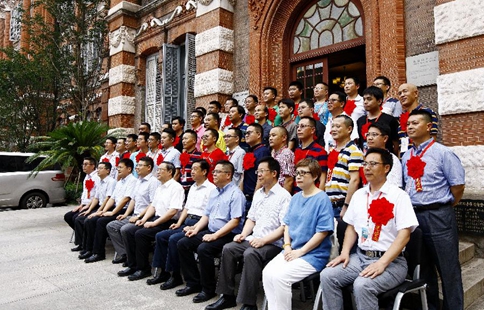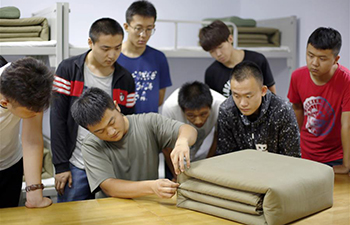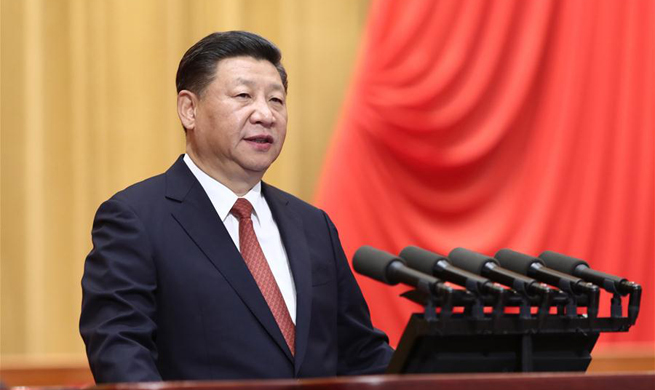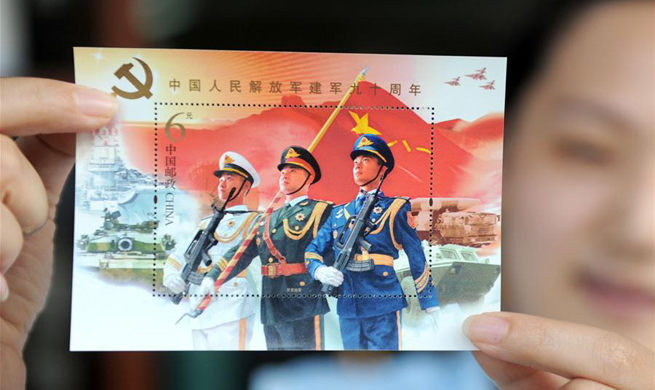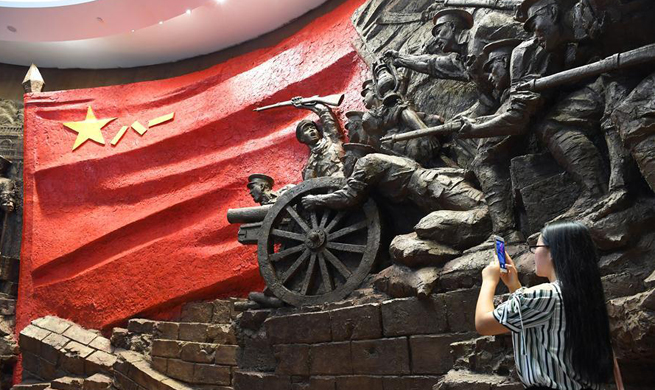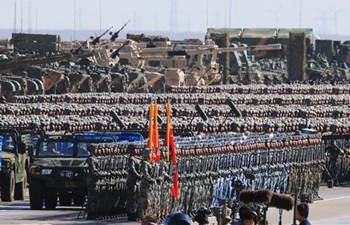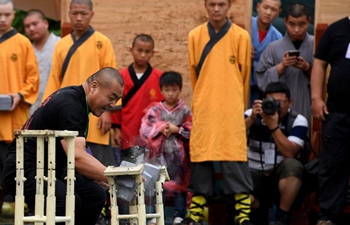SKOPJE, Aug. 1 (Xinhua) -- Macedonian Prime Minister Zoran Zaev and his Bulgarian counterpart Boyko Borisov signed an agreement on friendship, good neighborly relations, and cooperation here on Tuesday.
The agreement, which has been negotiated for several years, binds the two countries to cooperate in all fields based on mutual trust and respect. The agreement was immediately followed by memorandums for cooperation in the transport and energy sectors.
"We are taking an historic step forward and we are opening a road for stability and development for our countries. We are determined to lead a policy of solutions, not a policy of problems. And we have found Bulgaria to be our partner with the same goals," Zaev said upon signing the agreement.
The Bulgarian prime minister said this "important agreement" would bring Macedonia closer to NATO and EU.
However, the agreement has caused fierce political and scientific debate in Macedonia. The opposition party VMRO-DPMNE already announced it would not support the document in Macedonian Parliament. According to the party, the agreement threatens the national interests of the country, especially the part envisaging that the two countries will celebrate events from their joint history.
VMRO-DPMNE stressed in a written statement issued prior to Borisov's arrival that Bulgaria's demands to put the two countries' joint history into the agreement was "an attempt to confirm the thesis that Macedonian history is actually Bulgarian history, which supports the argument that Macedonia is a fictive nation created in 1944."
The party added that by signing this "capitulation agreement" Macedonia would face serious problems in the near future.
Some of the provisions of the agreement are controversial for expert historians in Macedonia as well. They reacted specifically to the part of the agreement wherein the two countries agree to establish a joint commission that would look into the historical interpretations in education curricula.
"Sadly, in recent years, politics has interfered with historic science more and more. As historians, we have always said that politics should be kept out of the interpretations of historic facts. This is what happens now and it can only cause problems," history professor Nikola Zhezhov said in Skopje.
The first step taken under the agreement will be a joint celebration of "Ilinden", Macedonia's Republic Day, marked on Aug 2. Borisov will stay in Skopje overnight for the celebration. Together with Zaev, his Macedonian counterpart, the Bulgarian prime minister will lay flowers on the grave of Macedonian revolutionary Goce Delchev on Wednesday.
Borisov said: "People say that if you look backwards, you will trip and fall. This is why we decided to look forward. You will see the results in some time. The term joint history is a term that opens joint perspectives, instead of divisions."







